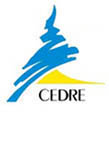Know-how and Make known
A) “Know”: the intelligence of the franchisor for the establishment of the commercial formula for success (business idea that works).
B) “How”: Pilot Phase (3 / 2 Rule), testing the economic reality of the idea (see: Olivier Gast « De la protection de l'idée commerciale» ["The protection of the business idea"], Les Petites Affiches, 1993) .
C) The know –know: phase of the implementation of the franchise. For the concept to be successful, one must ensure its reiteration. Via the press, exhibitions ... make oneself known so that the maximum number of candidates franchisees is interested.
All definitions in use today define the know-how in franchising as a set of technical knowledge on the concept developed by the franchisor and transmitted by him to the franchisee. The know-how thus traditionally includes a set of information relating to methods of franchised manufacturing, marketing, management, and possibly financing of goods or services.
The classical theory in case law and among the doctrine includes the notion of know-how as a know-how transmitted to the franchisee. The European Regulation on Franchise Agreements of 1999 requires this know-how to be in writing. This know-how is used as an instrument by using the Bible (or Operations manual)
Olivier Gast goes even further as he talks about Knowledge of Success.
25 years ago, the notion of know-how was an innovation and franchising a novelty. Today the notion of know-how has been trivialized. This is no longer enough, franchisees want more. They want the knowledge of success.
In today's franchising market, some franchisors own in the strictness sense of the word a know-how corresponding to its legal and jurisprudential definition and yet which leads to failure.
For a franchise to succeed, and succeed in the long term, the transfer of know-how related to the franchise concept is not enough. It is absolutely essential that the franchisor also make available to the franchisee an appropriate organization. This is the organizational know-how.
In reality the conceptual know-how is diluted in the organizational know-how. These are the organizational procedures (know-how not transmitted to the franchisee always secret) that explain the success of major global franchises (MacDonald’s, Yves Rocher ,...).
The deficiency of the classical definition of know-how is to leave aside the need for a know-how related to the organization of the franchisor.
The conditions of the franchise is more demanding now than 20 years ago, the good franchisors succeed today if they know how to structure their knowledge of success.









